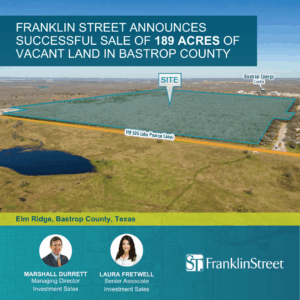ATLANTA–Talk about a turnaround. Atlanta had a long road back from the Great Recession but today developers are betting big on the Southern state.
Just how much development is underway in Atlanta? On the multifamily front, developers will add 9,750 units in 2015, according to Marcus & Millichap. New rentals will focus on high-rent areas in the Downtown, Midtown and Buckhead submarkets, where average rents per unit can top $1,400. Meanwhile, retail developers will bring about 1.6 million square feet of space to the market, mostly of pre-leased single-tenant offerings.
There’s a little less action in the office market. Developers will finish 626,000 square feet in 2015, down from the 1.4 million square feet completed last year. Looking at industrial, developers will deliver two million square feet of space, expanding inventory 0.3% by the end of the year. Finally, hospitality developers will add another 800 rooms to metro Atlanta’s hotel market by year’s end.
“It’s interesting how multifamily continues to lead us out of the doldrums,” says Thad Ellis, SVP and Atlanta market leader for Cousins Properties. “The past 24-plus months have been very good months to lease office in Atlanta, but multifamily developers are controlling of a lot of what were formerly very good office sites.”
Ella Shaw Neyland, president of Steadfast Apartment REIT, which has been acquiring multifamily assets in Atlanta, has some concerns about development there. For starters, although 400,000 new units nationwide is about 33% higher than the historic annual need for new supply, it does not catch up for the many years post recession where very few new apartment homes were constructed.
“A recent report from Freddie Mac says that we may be in a situation where we are about 1.5 million apartment homes short of demand today,” she says. “And that supply will not catch up with demand for the next nine years.”
Atlanta’s industrial vacancy represents a 13-year low, ranking it among the most active in the nation. A steady stream of organic growth combined with new entrants to the market is spurring the growth. “Atlanta’s market dynamics have led to historically low vacancy, increasing rental rates and significant investment sales activity,” says Todd Barton, a CBRE first VP of industrial. “The amount of spec development underway, while significant, is appropriate for the market given the limited deliveries in the past five years.”
In terms of retail, Monetha Cobb, managing director of Franklin Street of Atlanta, points out several recent large scale, notable retail-driven projects: Avalon, which opened in October 2014; Buckhead Atlanta, which had tiered openings over the past six months; and Ponce City Market, scheduled to open this fall.“If there is a small to mid-size development taking place, it is most likely being driven by one of the many grocers expanding in the metro Atlanta market,” she says. “This is great for many smaller restaurant or service-oriented tenants who benefit greatly from the ‘daily needs’ component the grocery store brings.”



